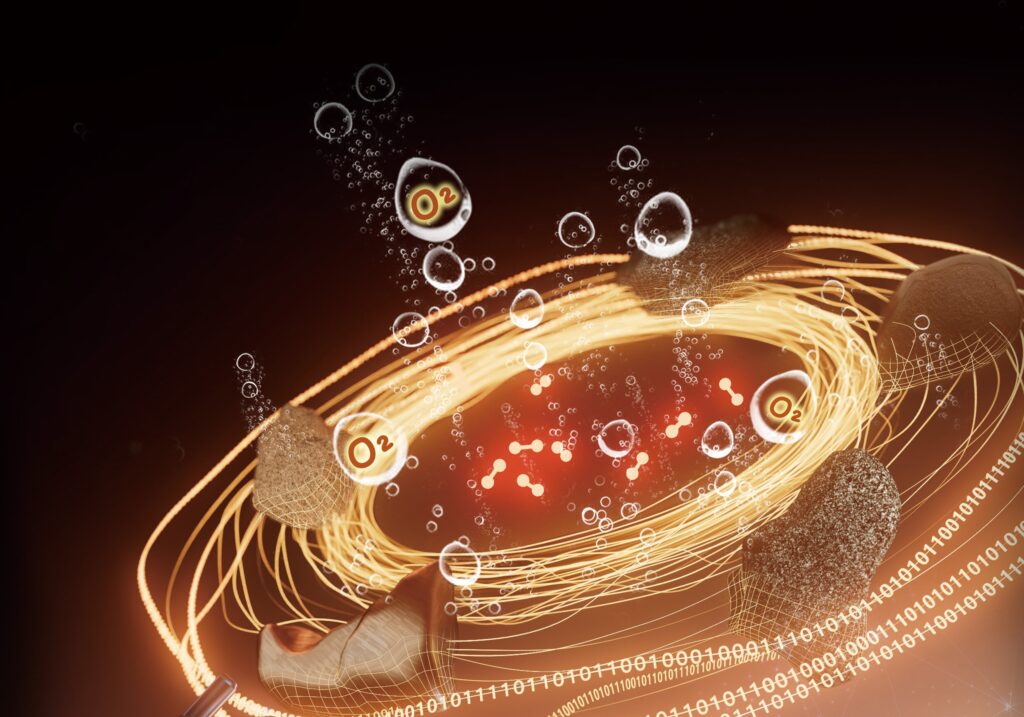Chinese scientists have used an artificial intelligence robot to synthesize oxygen in Martian conditions. The “electronic chemist” was able to synthesize the necessary catalyst from local materials. It accomplished the work that would have taken humans 2000 years.

Oxygen on Mars
Humanity is seriously preparing to go to Mars and stay there. But before this dream can become a reality, one obstacle must be overcome: the lack of breathable oxygen. It could be extracted from the water available on Mars, but the standard method of decomposing it under the influence of an electric current is too energy-intensive.
Scientists are now investigating the possibility of decomposing water to produce oxygen by electrochemical oxidation of water under the influence of solar energy using oxygenation reaction (OER) catalysts. The challenge is to find a way to synthesize these catalysts on site using materials on Mars, instead of transporting them from Earth, which is quite expensive.
Scientists from the University of Science and Technology of China became interested in this problem. They decided to isolate the necessary catalysts from Martian rocks, which were represented by meteorites that were once part of the Red Planet.
Artificial intelligence found the catalysts
To achieve the goal, scientists used artificial intelligence in the form of a robot chemist. It began experimenting with Martian samples, subjecting them to reactions that could easily be repeated on Mars. Each time, it checked what it had done with a laser-piercing spectrometer.
“The AI chemist’s brain performed quantum chemical and molecular dynamics calculations for 30,000 high-entropy hydroxides with different elemental ratios and calculated the catalytic activity using density functional theory. The simulation data is used to train a neural network model to quickly predict the activity of catalysts with different elemental compositions.
The artificial intelligence then used Bayesian statistics to predict the combination of available Martian ores needed to synthesize the optimal catalyst. Scientists say that in two months of operation, the machine solved as many problems as it would have taken them 2000 years to do.
The team is now working to turn the AI chemist into a universal experimental platform for chemical synthesis without human intervention. They also say that they now understand how to produce oxygen on Mars.
Based on materials from phys.org
